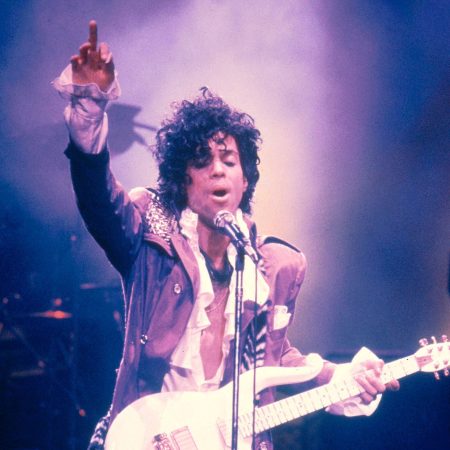
By Adrianna Richardson
This paper was written by compiling information found from analyzing several sources and completing research on Prince and his life/legacy. The full extent to how influential Prince was on the music industry as a whole and how he surpassed his contemporaries to become a pop culture phenomenon was illuminated by completing this research. By examining personal accounts of interactions with the late icon to his charitable contributions made throughout his life to foundations or even other musicians, there is substantial evidence of how and why Prince was so successful that discussed his work ethic and out of the box thinking rather than just his singing that helped him transcend into an upper stratosphere of fame that is only inhabited by few, such as Michael Jackson.
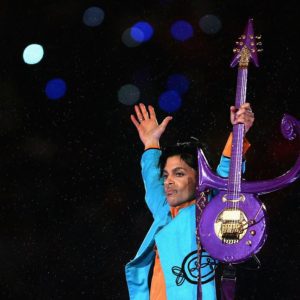
Prince Roger Nelson, better known as simply Prince, was an American singer, songwriter, musician, record producer, dancer, actor, and filmmaker. Born into a family of musicians, Prince quickly recognized his musical talent at a young age. At 19 years of age, Prince produced his debut album For You with Warner Bros. and consequently became the youngest producer at the label. With the single “I Wanna Be Your Lover,” hitting No. 1 on the R&B charts, Prince not only gained his first number 1 song, but it also launched the start of his decades-long career. From creating the “Minneapolis Sound,” which blended funk, rock, pop, and sexual lyrics, Prince helped break not only musical barriers but also social ones with his androgynous persona and advocation for creative control for artists- even going as far as to change his name to an unpronounceable symbol during the 1990s. Even after his death, he remains one of the biggest music stars seen to date and continues to influence artists of all genres. By examining all that Prince accomplished in his life, it is apparent that Prince is one of the most successful artists in modern-day history.
The man behind the infamous “Minneapolis sound” had a somewhat unconventional childhood. On June 7, 1958, at Mount Sinai Hospital in Minneapolis, Minnesota, Prince Roger Nelson entered the world. The healthy boy was born to Mattie Shaw and John Nelson. The unconventional name was a nod to the jazz ensemble that his parents had been a part of, the Prince Roger Trio. Since his father’s stage name was Prince Rogers, he was affectionately referred to as “Skipper” by his mom due to his short stature. Unfortunately, his home life was very rocky, and he was adopted into another family after he left home at the age of 12.
Born to a mother and father inclined to the arts, Prince, as well, seemed to have an innate love and ability for music. In an interview with a reporter from the Star Tribune in 1984, his mother spoke of how as early as three years of age, any time she would take Prince to a department store, she would lose him in the music department and would usually find him on some instrument, typically being either the piano or organ. This hunger for music and instruments led to him learning how to play the piano, guitar, bass, drums, and several other instruments at a very young age. Yet, his natural ability for music didn’t carry over to his ability to be a student of music as he said in an interview that he never enjoyed music lessons as he would get in trouble for creating his own songs and not playing the songs that the teacher wanted him to perform. In the same interview, he also revealed that he couldn’t read music, further exemplifying his natural ability to perform.
Regarding his musical influences, while growing up, Prince stated on Larry King Live in 1999 that he was able to experience and appreciate all genres of music due to his home in Minnesota from Fleetwood Mac to Santana. From the beginning, it can be seen how Prince was made for music. His innate ability to play multiple instruments and think outside of the box in correlation to the implementation of different instruments in songs realized in his early years definitely helped him later in his life, in his career, distinguish himself from other artists and create a name for himself.
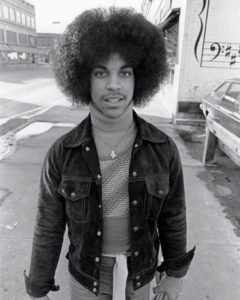
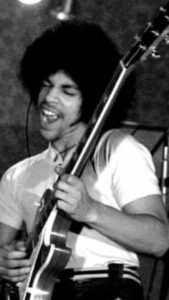
In high school, Prince played in the band, Grand Central, composed of Andre Anderson and Charles Smith (who was replaced later by Morris Day). Having somewhat begun to cultivate his signature “Minneapolis Sound,” Prince left school at the young age of 16. In 1976, Prince was able to get his break when a south Minneapolis studio proprietor, Chris Moon, hired himself and a few other musicians to record music for a project of his. Moon, seeing Prince’s talent, gave Prince a key to the studio so that Prince could work at night on his music. After creating his demo tape, Prince and Moon tried to pitch it to record labels, but the effort wasn’t fruitful. After being unsuccessful in that avenue, Prince and Moon turned to concert promoter and ad agency owner Owen Husney. Husney raised $50,000 from investors who saw Prince’s potential to help support the young artist while he was trying to get a record contract. Recognizing the need to record a second demo track, Prince was able to, through connections, enlist David Rivkin, a Minneapolis recording engineer. This time, the demo tape garnered a reaction from big record labels. Rejecting A&M and Columbia, Husney chose for Prince to sign with Warner Bros. at the age of 19 as the executives of the company disclosed that they would allow Prince to have artistic freedom and to produce his debut album.
Early on in his career, Prince hinted at his “Minneapolis Sound,” characterized by synthesizer riffs and industrial-sounding drum machines, but did not fully establish his signature sound yet. He found early success on the R&B charts with his debut album written, composed, arranged, performed, and produced by himself under Warner Bros., For You, with the single “Soft and Wet” becoming one of the biggest hits off of the album. His subsequent album, Prince, also found success on the R&B charts. Following the release of his early albums, he set the trend that would carry throughout his legendary career. He would be commonly credited with producing, arranging, composing, and performing his various songs. It would not be until later in his career that Prince would be able to master the crossover between different music genres that made him synonymous with his signature “Minneapolis Sound.”
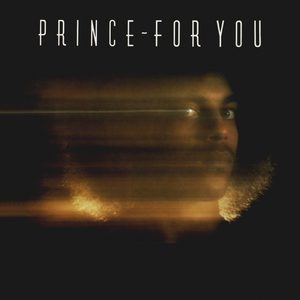
As Prince’s fame grew, so did his comfort with other musical genres. He began to push boundaries (both socially and musically). With the releases of Dirty Mind (1980) and Controversy (1981), Prince’s “Minneapolis Sound” was able to be fully recognized as he created songs with nods to a diverse array of musical genres such as jazz, funk, pop, and rock. He also began to become more comfortable as a performer. He began to put on more notable performances that became more lavish and erotic. Prince, along with his mixed-gender band, The Revolution, in the 1980s, helped influence many of the decade’s trends thanks to the popularity gained from the new music channel MTV.
In 1982, the album many consider to be one of Prince’s most well known, 1999, was released. It was the album’s popularity that helped propel Prince to becoming a bonafide superstar. Thanks to the album’s success, he became an MTV regular and a solidified mainstream chart-topper. Yet, although he had come close, he still had not achieved a number 1 song on the Billboard Hot 100 chart. In response to this, Prince thought of the concept of creating a film, and although somewhat hesitantly, Warner Brothers decided to support the endeavor. Two years later, following the release of his first number 1 album, 1999, in 1984, Prince released the semi-autobiographical film Purple Rain to which he also wrote and produced the accompanying soundtrack. The album and the film were commercial successes. The album sold about 13 million copies, and the film grossed more than $80 million in the United States alone. To add to the movie’s success, Prince won an Oscar for his work on the movie’s soundtrack and was able to take the next step from being a famous artist to being a cultural icon such as Michael Jackson or Madonna.
Following the success of 1999 and Purple Rain, Prince continued to explore his range in the closing years of the 1980s. After the release of his eighth full-length studio album, Parade, Prince disbanded The Revolution in 1986. Following this, in 1987, he released his ninth full-length studio album, Sign o’ the Times, proving that he could indeed replicate the success he found in the earlier half of the decade again, as even today, the album still ranks high on various music critics’ most-esteemed lists. Finally, closing out the decade that helped bring him great success and fame, Prince found success and claimed awards for recording the soundtrack for the Tim Burton movie, Batman.
As he entered the next decade, instead of slowing down, Prince continued to challenge the status quo. His diverse music, erotic performances, and controversial lyrics helped him remain popular in the new decades’ changing trends. In response to the new decade’s most popular music style being hip-hop and rap, Prince formed the band, The New Power Generation, in 1991 and started to create music with nods to hip-hop and rap. In reference to how he continued to push against societal norms, in 1992, his song, “Sexy MF,” was considered so violently inappropriate that it was banned in the United Kingdom for its lyrics.
In continuation, during the 1990s, Prince also pushed back against his label, Warner Bros., as he challenged the contracting procedures in the music industry. In an unprecedented move, Prince changed his name to an unpronounceable symbol to get out of his contract with Warner Brothers. He began to be commonly referred to by the public as “The Artist Formerly Known as Prince.” Also, Prince started to appear in public, whether at concerts or talk show appearances, with the word “slave” on his cheek, raising even more awareness of the rampant dirty dealings in the music industry that restricted artists and took away their artistic freedoms.
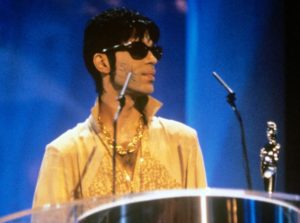
In the final years of his career and life, Prince once again displayed his ability to be able to change with the times. In response to the internet’s growth in the 2000s, Prince became an early supporter of streaming music to his audience. He found diverse ways to continue to stay relevant in the new decade by pairing albums with concert tickets (Musicology) and holding sweepstakes where people could enter to win a private performance from him potentially (3121). However, that changed upon his observations of the downsides of the internet, such as his music’s ability to be pirated. Fortunately, he was able to move past the negatives behind the internet and utilize it to his benefit by removing his catalog from all other streaming services other than Tidal, the streaming service headed by Jay-Z. Other than his battles with the lawlessness of the internet, Prince continued to work on his artistry by still writing and releasing music. From collaborating with 3rdEyeGirl (his last band) and touring worldwide, Prince would also hold smaller concerts from his Paisley Park compound’s comforts in Chanhassen, Minnesota. During his final years, he also still received recognition for all of his success, such as when he was inducted into the Rock and Roll Hall of Fame (2004), performed at the Super Bowl (2007), and was named one of Time’s most influential people in the world (2010).
Prince had a lot of contemporaries during his decades-long career. Some of his contemporaries include the late Michael Jackson, Madonna, Chaka Khan, and George Clinton.
As stated before, Prince called on a lot of different musicians from all different genres as inspirations for his “Minneapolis Sound.” Growing up in Minnesota as a child, his most memorable or significant influences came from R&B, rock, and funk. Thanks to one of his neighbors, Sonny Thompson, that Prince was introduced to rock music, which later became an integral part of his unique sound.
The Grammy’s
1984: Best Original Album: Purple Rain
1984: Best R&B Song: I Feel For You
1984: Best Rock and Roll Vocal Performance: Purple Rain
1986: Best R&B Vocal Performance: Kiss
2005: Best Male R&B Performance: Call My Name
2005: Best Traditional R&B Performance: Musicology
2008: Best Male R&B Performance: Future Baby Mamma
The Brit Awards
1985: Best International Act
1992: Best International Male Solo Artist
1993: Best International Male Solo Artist
1995: Best International Male Solo Artist
1996: Best International Male Solo Artist
American Music Awards
1985: Best Pop Album: Purple Rain
1985: Best R&B Single: When Doves Cry
1985: Best Soul/R&B Album: Purple Rain
1990: Award of Achievement
1995: Award of Merit
2016: Top Soundtrack: Purple Rain (posthumous)
MTV Video Music Awards
1986: Best Dance Video: Raspberry Beret
1988: Best Male Video: U Got The Look
1992: Best Dance Video: Cream
Academy Awards (Oscars)
1985: Best Original Song Score: Purple Rain
The Golden Globe Awards
2007: Best Original Song For A Motion Picture: The Song Of The Heart
World Music Awards
1994: Outstanding Contribution to the Pop Industry
ASCAP Awards
1990: Most Performed Song From A Motion Picture: Partyman
1991: Most Performed Song From A Motion Picture: Thieves in the Temple
Black Entertainment (BET) Awards
2006: Best Male R&B Artist
2010: Lifetime Achievement Award
National Association for the Advancement of Coloured People (NAACP) Image Awards
1997: Special Achievement Award
2005: Outstanding Album: Musicology
2005: Vanguard Award
2007: Outstanding Male Artist
Q Awards
1990: Best Songwriter
Rock and Roll Hall of Fame
2004: Inducted (US)
2006: Inducted (UK)
Grammy Hall of Fame
2008: Inducted Album: 1999
Internet Awards
1999: Yahoo – Best Internet Single: The War
2000: Yahoo – Best Internet Single: One Song
2001: Yahoo – Best Internet Single: The Work Part 1
2004: Billboard Digital – Best Use of Technology by an Artist
2005: Horizon Interactive – Best Entertainment Website
2006: Webby – Lifetime Achievement
Billboard Music Awards
2007: The Boxscore Award: The Earth Tour (21 sell-out arena shows)
2013: Icon Award
Soul Train Awards
1992: Heritage Award
2000: Male Artist of the Decade
World Soundtrack Awards
2004: Special 20th Anniversary Award: Purple Rain
Pollstar Awards
2004: Most Innovative Stage Design: Musicology
2004: Major Tour of the Year Award: Musicology
British Pop Industry Awards
1985: Best International Artist
1985: Best Soundtrack Album: Purple Rain
Soul of American Music Awards
1994: The Living Legend Award
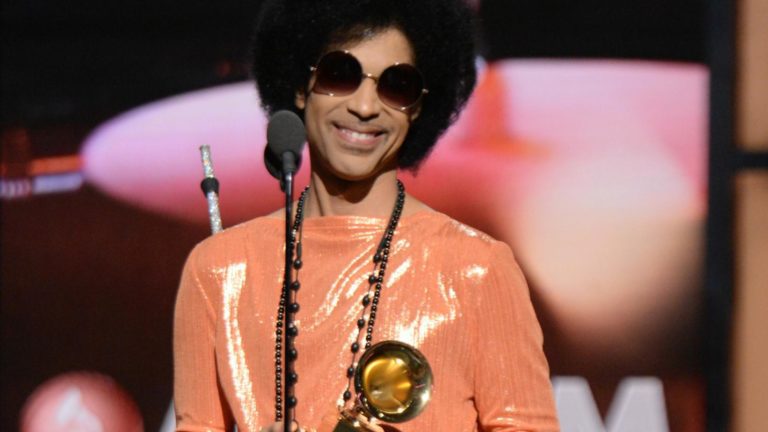
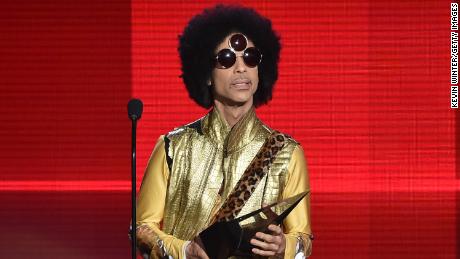

Prince was heavily involved in his community in many different ways. In the mid-1990s to early 2000s, Prince fought for the better treatment of artists such as himself by taking on his record label. He fought Warner Bros. to get out of his contract by changing his name to an unpronounceable symbol to get the public’s attention drawn to the unjust practices in the music industry that led to the exploitation of artists. In addition to fighting what he called the “slavery” in the music industry, Prince also contributed to several different groups that helped minorities. Prince supported many charities and foundations such as #YesWeCode, a group that aims towards increasing awareness of the possibilities in the tech field for minorities, and Green for All, a nonprofit whose objective is to create a green economy that helps raise the quality of life for everyone. He also got involved in the Black Lives Matter Movement with his song “Baltimore,” which was inspired by the rampant police brutality in America and the death of Freddie Gray, who was killed while in police custody.
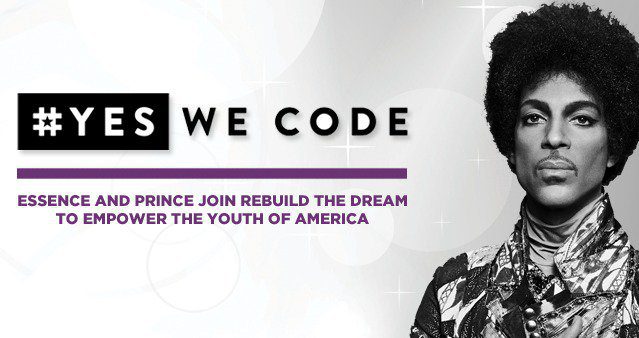
At the age of 57, on April 21, 2016, Prince Rogers Nelson died at his home. The physical body that Prince utilized to produce his body may have perished that day, but his music will continue to live on as new generations get introduced to his discography. He broke the mold in several different ways. From his creation of the “Minneapolis Sound” to his androgynous style and his fight for artists’ freedom, Prince transcended to a level of notoriety only known by few artists. Prince wrote over a thousand songs while alive, and more often than not, would play all of the instruments for every song. He loved his craft and worked hard to hone it every day he was alive. Thus, it is appropriate to say that Prince was one of the biggest musical superstars ever seen before in the modern-day music era and was very influential to the next generation of musical artists.
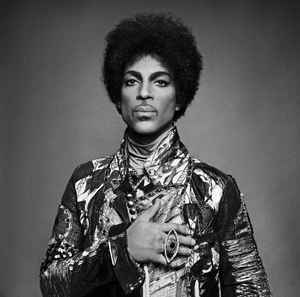
Over his 40 year career, Prince wrote hundreds of songs and released them under his real name and pseudonyms. It is estimated that the actual number of songs Prince wrote, both unreleased and released, are within the range of 500 to over 1,000. In addition, he released dozens of albums during his lifetime, from live albums to studio recordings, compilations, and collaborations.
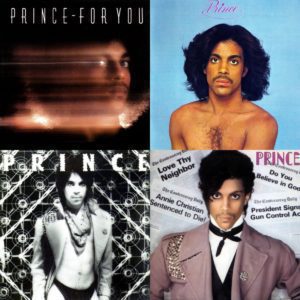
Works Cited:
Beverton, Alys. “Prince Rogers Nelson (‘Prince,” ‘The Artist Formerly Known As Prince’) (1958-2016).” Welcome to Blackpast •, 8 Feb. 2020, www.blackpast.org/african-american-history/nelson-prince-rogers-prince-artist-formerly-known-prince-1958/.
Kostaras, Michael. “The Life of Prince.” Music Business Journal, www.thembj.org/2016/06/the-life-of-prince/.
“Oral History: Prince’s Life, as Told by the People Who Knew Him Best.” Minneapolis Star Tribune, April 26, 2016. http://www.startribune.com/the-life-of-prince-as-told-by-the-people-who-knew-him/376586581/#1
Riemenschneider, Chris, and Jon Bream. “Obituary: Prince Was a Diminutive Giant Who Revolutionized Pop Music.” Minneapolis Star Tribune, April 28, 2016.
Yuen, Laura, et al. “16 Things You Should Know about Prince.” MPR News, MPR News, 21 Apr. 2016, www.mprnews.org/story/2016/04/21/things-you-should-know-about-prince.
Zschomler, Kristen. “Prince (1958–2016).” MNopedia, 2017. https://www.mnopedia.org/person/prince-1958-2016

Login to your account